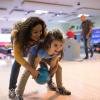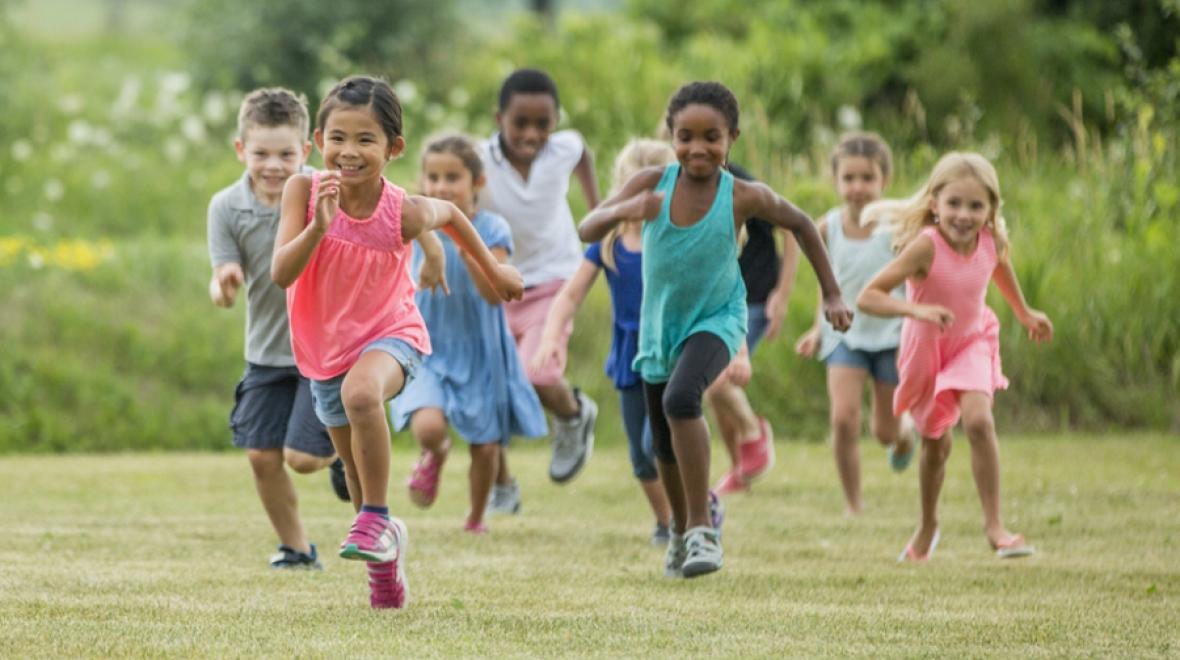
So many activities blur that line between fun and hard. A lot of hard things aren’t exactly fun but are soul-satisfyingly rewarding: Painting your house. Traveling with elderly parents. Parenting.
And running.
For little kids, running is both pure joy and necessity, as any parent who has stopped at a park before a long drive to get those wiggles out can tell you.
But then, running changes. Running the dreaded mile in PE, doing laps as punishment for egregious errors in sports, and enduring side-stitches are not fun. But, if kids can push through the discomfort, running again turns joyful. In fact, older children and adults often appreciate running even more than those gleeful toddlers, because it is hard. The work is the reward.
Of course running is good for children's physical health, but there are a lot of other reasons to encourage kids to become runners.
Running teaches patience.
At nearly every distance race, a couple young runners will start at an all-out sprint. One-hundred meters in, they’ll be red-faced and walking as seventy-year-old ladies with water-bottle hand-weights jog past them. After a few spurts and stops, kids learn to clip along at a steady pace. They learn patience and diligence. Off the field, patience translates into enhanced ability to plan out long term projects and make more thoughtful decisions.
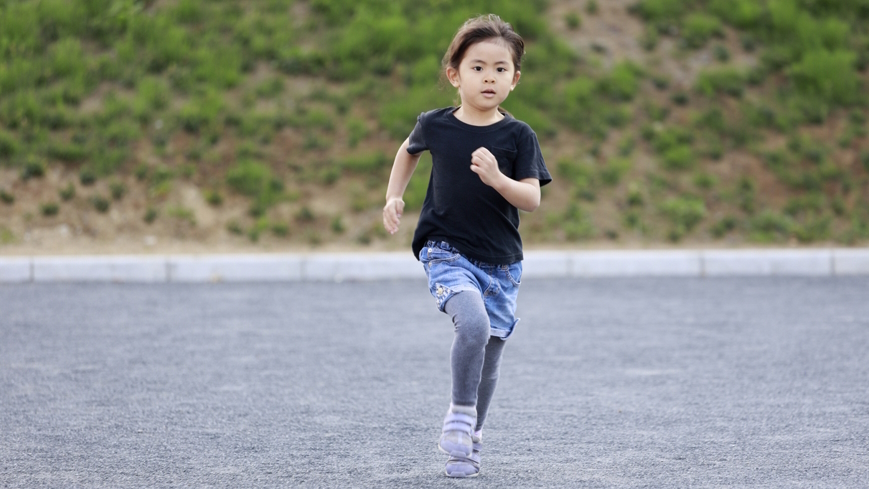
Running helps kids value practice.
It is a generous and glorious fact of life that whatever you practice, you will get better at it. Kids learn that the more they run, the better they will get at running. What is true for running, will likely be true for other areas of life as well.
Running guards against the deleterious effects of social media.
With the availability of TikTok and other dopamine-grabbing apps, our kids’ brains (and if we’re being honest, all our brains) are being rewired to crave the quick fix. Dr. Anna Lembke’s book “Dopamine Nation” discusses how our brains need homeostasis. When a pleasurable activity provides a dopamine hit, our brains must counteract with a dopamine dip (the post-holiday let-down, for example). The constant entertainment on phones allows kids to binge on pleasure, but the corresponding let-down can plunge our children into the depths of depression.
Replacing pleasurable social media hits with challenging activities, such as running, leads to better mental health outcomes because the pain comes first. Once kids finish their run, they are left with the reward. Having to work for that dopamine hit leads to a more enduring happiness.
Running builds strength and confidence for other sports.
Maybe your kid won’t grow up to be a cross-country athlete or track star. No problem. Any challenging activity can help regulate dopamine. Should your kid’s passions lead them to cheerleading or lacrosse or playing capture the flag with friends, having the ability to run is helpful. A warm-up run is often utilized in early practices, and being able to nail those few laps around the field or gym is a great confidence boost no matter what sport or activity they choose.
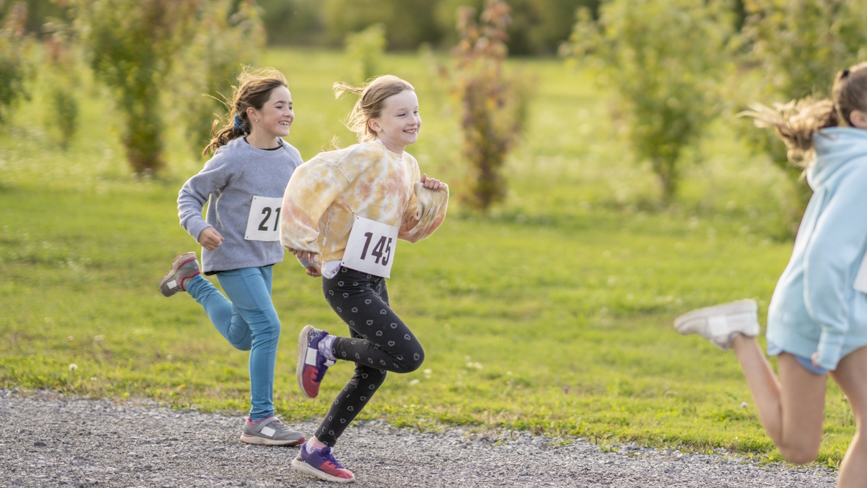
Running means more outdoor time.
The lack of outdoor time affects seemingly every facet of our kids’ health. Those that spend more time outside are less likely to be obese, have stronger bones and immune systems and even better eyesight, as our eyes need to seek distant horizons to stay healthy. Kids that run outside get all the running benefits plus the outdoor time.
How to make running (at least a little) fun
For all this talk about hard work and patience, sometimes fun activities are necessary to hook kids on running before they realize all the fabulous benefits of those miles on their own. Here are some ideas you can try with your own kids:
- Timed scavenger hunts: Hide treats in a large field, Easter egg style, and time your kid to see how fast they can find them. There will be instant dashing from place to place.
- Relay races: These are especially fun for groups of kids at empty Little League practice fields. Line up a few kids at home plate and another group at second base. Each kid runs the bases and passes a baton to the next member of their team.
- Start small. Challenge your reluctant-runner to a three minute run. Then you can walk back home. Even a 10 or 15 minute spurt of outdoor activity has benefits.
- Join a running club. Find a club such as Girls on the Run, a nonprofit organization that combines running, team building and confidence-building lessons. Typically meeting twice a week after school, kids stretch, run and then complete activities or service projects together at running clubs.
- Train for a race. Find a local race in the Greater Seattle area, or check out some of these upcoming kid-friendly races:
- Girls on the Run End-of-the-Season 5K: Even if your kid didn’t participate in Girls on the Run, they can still sign up for the end-of-the-season 5K. Families are encouraged to participate, and there are usually lots of walkers. The Snohomish County Girls on the Run 5K is in Mill Creek on June 9. The Puget Sound Club will be hosting their run on May 19 at Renton Memorial Stadium.
- A 2-mile Color Run in Concrete, Washington: Wear a white T-shirt for this May 18 run and prepare to be splattered at color stations mid-run.
- Bill Roe All-Comer’s Track Meets take place every Wednesday (May 29–Aug. 14) at Shoreline Stadium. With food trucks and tons of races for every age and ability level, these are festive community affairs.
- Sundae Runday. Finish your run with ice cream! This July 14 race at Genesee Park includes a run through a sundae-toppings bar.
- Get inspired by Olympians. On July 26, Olympians will begin competing in Paris. Watching an emotional marathon finish, a tense relay sprint or listening to an athlete talk about what running means to them will inspire even the most reluctant runner to go a few laps around the neighborhood or track.
- Track your miles with a virtual running challenge. If your kids love habit trackers and getting gold stars, these challenges are the best. Sign up online, track your miles and get a medal when you complete your goal.
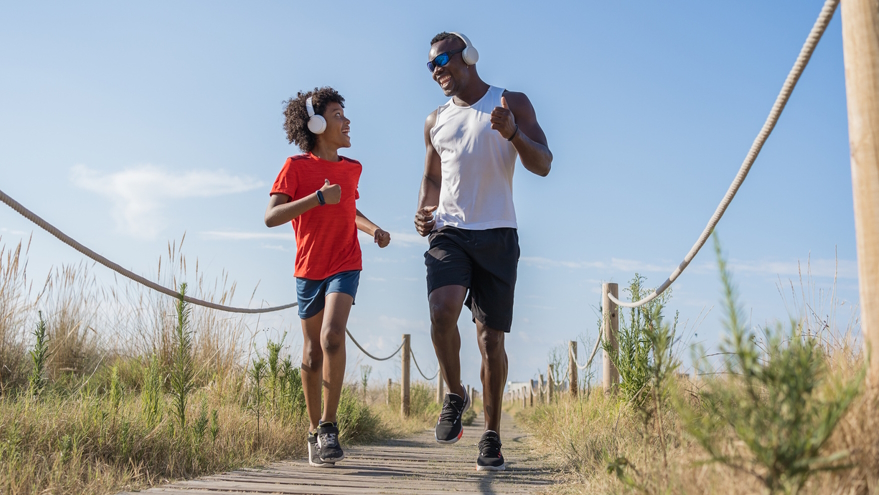
More ways to get moving |







